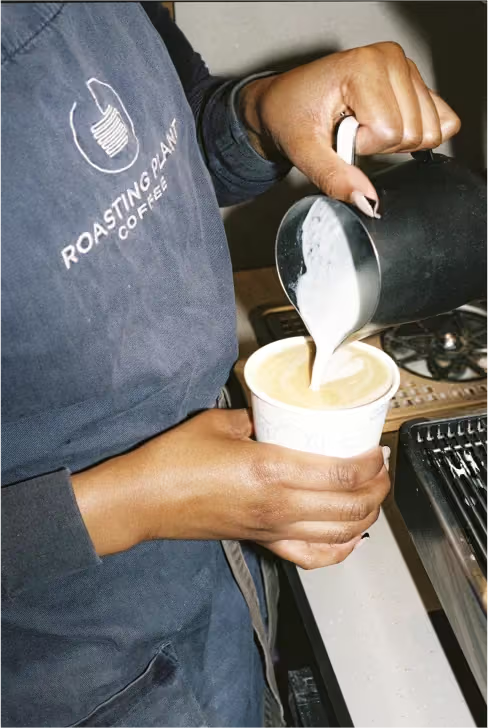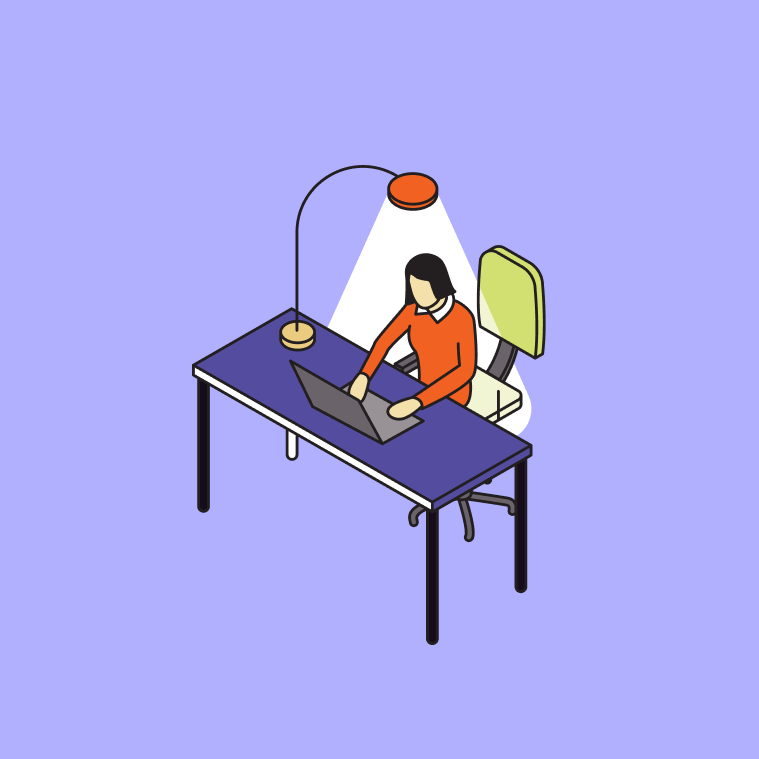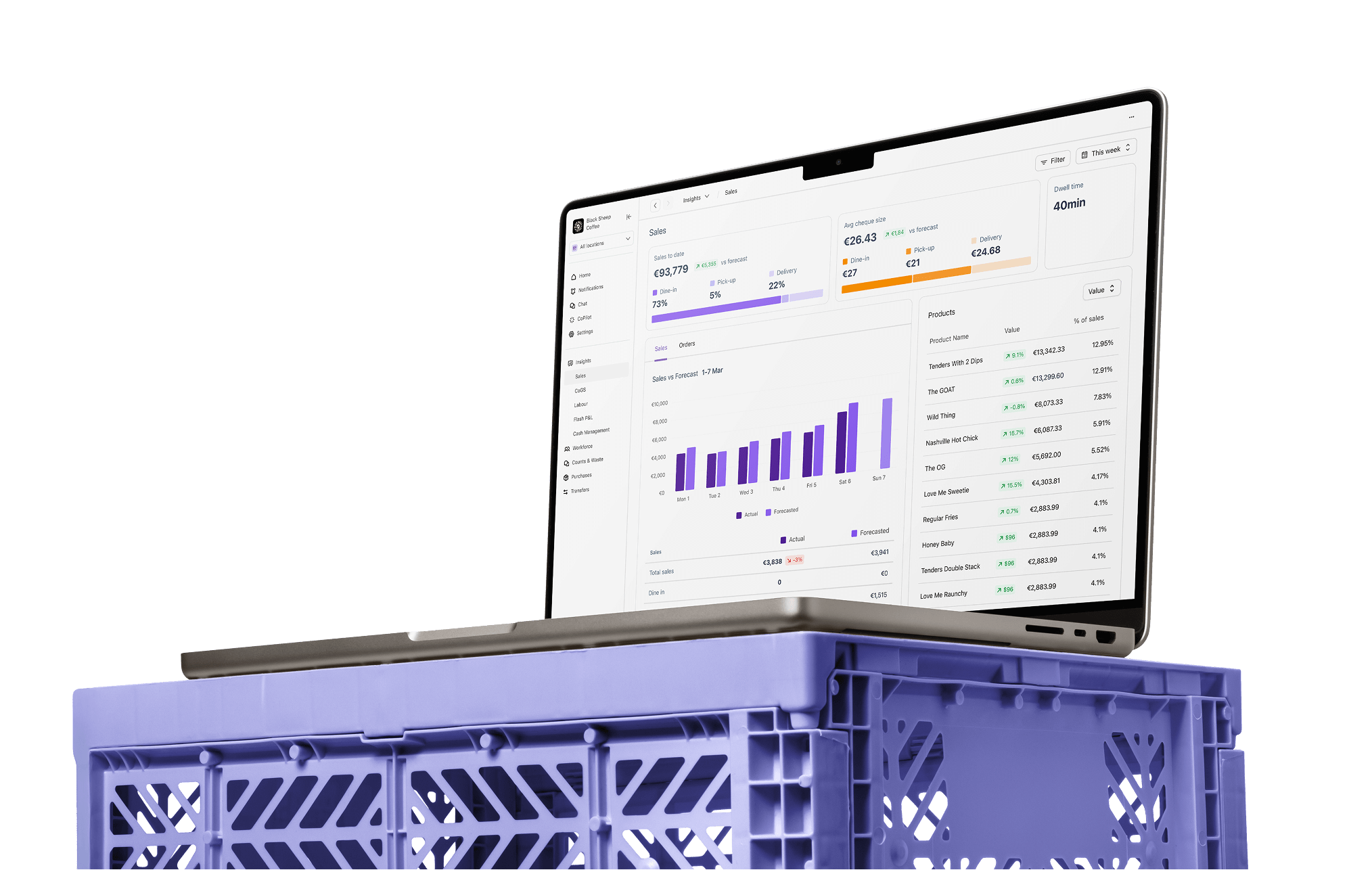Restaurant AI: Friend or foe? We think friend, and here’s why
Artificial intelligence (AI) is constantly evolving. Its impact on the hospitality industry is changing rapidly. Sometimes, it’s hard to keep up with what’s going on and how to use AI in your restaurant business.
Trust us, we get it. That’s why we’re stripping it back to basics.
In this article, we’ll walk you through the fundamentals of AI for restaurants, explaining how it impacts day-to-day operations, the influence it’s having on the industry, and why restaurants need it.
But before we get to that, let’s clarify what AI actually is.
What is artificial intelligence? A simple explanation
Artificial intelligence (AI) is software that mimics human intelligence. It can solve problems, automate processes, and minimise the need for people to perform repetitive tasks.
But how exactly does it work?
It depends on the platform. But generally speaking, it analyses historical data (from sources like online tools, customer feedback, and other internal data) to make predictions and suggestions for improvements.
A restaurant AI platform like Nory, for example, can review your sales performance to recommend when to order new inventory or how to keep your budget in check.

With the right AI software in place, restaurant managers can improve their operations and increase profitability. It can pinpoint your most popular menu items, your most profitable ingredients, and so on.
Is AI in restaurants really necessary?
To put it simply, yes. In fact, 94% of restaurant operators acknowledge that AI is necessary to remain competitive.
AI is opening up a whole new world of opportunities for restaurants to grow, cater to customer preferences, and improve the bottom line. Failing to incorporate AI as part of your business means potentially missing out on these opportunities.
Let’s use scheduling as an example.
Creating a demand-based schedule allows you to meet customer demand and prevent overstaffing. It’s possible to create this schedule manually, although it can be tricky and time-consuming.
You need to analyse past data to figure out when your peak periods are and how many staff you need on the roster. Plus, you also need to consider staff experience and availability.
With AI, the system can automatically analyse all this information to create demand-based schedules in a matter of seconds.

The system reviews your historical data to identify peak periods and creates schedules to ensure you have enough staff (with the right skills and availability) to meet customer demand. It also ensures you don’t overstaff during quiet periods, which prevents overspending on staff wages (which are getting increasingly high).
How can AI be used in a restaurant?
Let’s take a look at some of the ways AI can improve your restaurant management.
- To personalise the dining experience: Almost half of restaurant operators say that AI can improve the overall guest experience. Why? Because it allows you to personalise their experience. Think about loyalty schemes as an example. You can use AI to offer personalised rewards based on their past behaviour. This encourages them to return to your restaurant and gives them a good experience in the process. Two birds, one stone!
- To streamline operations. AI software pinpoints inefficiencies in your processes and offers suggestions to improve them. Whether it’s your supply chain, your payroll, or your labour productivity, the software can identify ways to streamline operations and improve your business.
- To identify areas of profitability. As we mentioned, AI is really good at analysing large sets of data, like sales and performance insights. By analysing this information, it can pinpoint areas where you can increase profitability. Whether that’s by reducing food waste, increasing prices, or improving your inventory management.
How is AI impacting the restaurant industry?
AI is taking the industry by storm, influencing the way restaurants manage their operations. — but how exactly does it impact the day-to-day operations of running a restaurant?
Let’s take a look.
Cutting costs
Keeping costs as low as possible is a priority for every hospitality business in the current climate. Prices are rising, inflation is high, and the minimum wage is higher than ever before.
The good news is that AI-powered tools give restaurants power over their costs, with 56% of restaurant leaders saying that automation has helped them increase revenue.
But how exactly does it cut costs?
AI software provides a clear breakdown of what you’re spending and can recommend ways to bring these costs down.
For example, if you’re buying ingredients that often go to waste, the software will pick up on this. Then, you can make changes to the amount of ingredients you need and reduce your inventory costs.

It also helps you automate simple and repetitive tasks, like taking reservations or entering orders in your point-of-sale (POS) system. This often means you need less staff for shifts, and frees up time for staff to focus on other areas of their job.
Reducing errors
Human error can cause a lot of mishaps in restaurants. Whether it’s incorrect scheduling, misinterpretation of data, or failing to handle payroll correctly — the list goes on of potential human errors.
With AI, restaurants are minimising errors across the board.
Let’s use data analysis as an example.
With AI, there’s less need for people to interpret data themselves. The software does it for them, meaning there’s less human error and more reliable data. As a result, restaurant owners can make informed decisions about how to improve operations and boost profits.
Planning with accuracy
Following on from the lack of human error, AI technology provides reliable and accurate information. As a result, you can plan for the future with confidence, making smart and informed choices about your restaurant.
Sales forecasting is a good example. AI software can analyse your previous sales to make predictions for the future. It can show you when you’ll be busy periods, which helps you:
- Order the right quantity of ingredients
- Schedule the right amount of staff
As a result, you can meet customer demand without overspending on staff wages or underordering key ingredients.
Integrate AI into your restaurant operations with Nory
AI isn’t going anywhere, and we think that’s a good thing. It provides restaurants with the opportunity to improve operations and increase profits, something which many hospitality businesses are struggling to do in the current climate.
If you’re thinking about implementing AI but aren’t sure where to start, reach out to the team at Nory. Our restaurant management system analyses your sales performance, manages your workforce, and tracks your inventory in real-time!
FAQs
How AI is used in restaurants?
AI can support restaurant operations in several ways. It can optimise your menu items for profitability, improve your employee scheduling, and make personalised recommendations to enhance the customer dining experience.
Ultimately, it’s up to you how you want to use AI to benefit your restaurant. For some businesses, demand-based scheduling is a top priority. For others, it’s improving inventory management, and so on.
Is there a fully automated restaurant?
Yes! A fully automated restaurant has just opened in Pasadena, California. CaliExpress allows customers to order from self-service kiosks before robots prepare the food. The kiosks even use facial recognition to remember customers, their favourite foods, and how they like to pay.
What is the future of AI in restaurants?
To be honest, it’s kind of hard to say. Who knows what developments will happen in five, 10, or even 20 years? But based on what we’ve seen so far, it’s likely that automation will continue evolving in restaurants. Improving inventory management, streamlining operational efficiency, and enhancing the dining experience will all continue as AI develops and supports restaurants.


.webp)
.webp)


